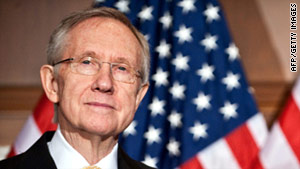This week, Shared Hope International traveled to the Lone Star State to release the third of 51 Protected Innocence Report Cards. In partnership with Children at Risk, Shared Hope International presented the Texas Report Card to trafficking survivors, former pimps, former NFL players, and congressional members in Dallas on Saturday at a community rally sponsored by Traffick 911. In addition, Shared Hope presented the Texas Protected Innocence Report Card at events in San Antonio, Houston and Austin alongside fellow advocates for change including Senator Leticia Van de Putt, Rep. Senfronia Thompson, Attorney General Greg Abbott, Chris Burchell (Texas Anti-Trafficking In Persons) and many others.
Texas scored a “C,” indicating that Texas state law contains some provisions against domestic minor sex trafficking, but leaves generous room for improvement. One of the key findings of the Report Card was that current state law requires proof of force to prove the crime of trafficking-even for children. This is a direct contradiction to the federal Trafficking Victim’s Protection Act, which recognizes any child exploited through commercial sex as a victim of trafficking.
While there is a sizable legislative gap in Texas that threatens to entrap domestic minor sex trafficking victims, Shared Hope International offers solutions. One of the key recommendations is that Texas enact a stand alone sex trafficking of a child statute, which eliminates the requirement to prove force, includes the crime of buying sex with a minor, and ensures identification of a minor victim as a trafficking victim.
Shared Hope International offers this, and many other recommendations, in a complete Analysis and Recommendation document to expose legislative gaps and provide legislators with the tools they need to ensure the protection of victims and the punishment of criminals.
Legislative changes are necessary to help combat the exploitation of Texas’ children. According to a 2009 report by the Texas Human Trafficking Prevention Task Force, “11,942 juveniles were arrested for running away in Texas. An additional 66 were arrested for prostitution and commercialized vice.” Recently, Traffick911 pushed its “I’m not buying it”campaign to help raise awareness about child sex trafficking surrounding Super Bowl XLV. Arlington police made an astounding 59 prostitution related arrests leading up to the game.
Due to the prevalence of human trafficking in Texas, lawmakers have introduced several new bills aimed at increasing penalties for traffickers and providing protection for minors: HB1121,1122, and SB 98 are just a few. This push toward change is mirrored by Attorney General Greg Abbott, who gave a keynote address in San Antonio calling for more collaboration between law enforcement officials to “ensure [Texas] is both hostile territory for human traffickers and a safe haven for their victims.”
All of these efforts are a step in the right direction toward combating domestic minor sex trafficking. Now it’s up to you. If you live in Texas, alert your representative to this critical issue and make your voice count!
 Why would Sen. Reid risk saying such a bold statement? He insisted it was because he wanted to “prove that we’re [Nevada is] a 21st-century state” revealing that he believes legal prostitution mars the reputation of Nevada. He followed with an anecdote about meeting a company who chooses not to move to Nevada over this very concern. Sen. Reid reasoned, “Nevada needs to be known as the first place for innovation and investment – not as the last place where prostitution is still legal.”
Why would Sen. Reid risk saying such a bold statement? He insisted it was because he wanted to “prove that we’re [Nevada is] a 21st-century state” revealing that he believes legal prostitution mars the reputation of Nevada. He followed with an anecdote about meeting a company who chooses not to move to Nevada over this very concern. Sen. Reid reasoned, “Nevada needs to be known as the first place for innovation and investment – not as the last place where prostitution is still legal.”





